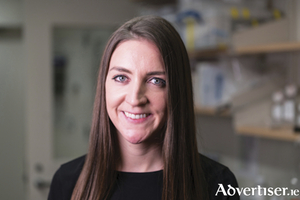Search Results for 'first author'
6 results found.
Covid-19 vaccine rollout creates an incentive to improve our health
The rollout of Covid-19 vaccines is well under way, and now is the time for each of us to plan for our turn.
NUI Galway research set to revolutionise use of body implants

Researchers from the National University of Ireland Galway (NUI Galway), Massachusetts Institute of Technology and AMBER, the SFI Research Centre for Advanced Materials and BioEngineering Research have today (Thursday, 29 August) announced a significant breakthrough in soft robotics which could help patients requiring in-situ (implanted) medical devices such as breast implants, pacemakers, neural probes, glucose biosensors and drug and cell delivery devices.
NUIG scientists discover new treatment strategy for breast cancer relapse
NUI Galway scientists have made a breakthrough in the treatment of patients with triple negative breast cancer.
NUI study identifies successful dietary factors in Type 2 diabetes
A new study published this month in the international journal Diabetes Care, provides important clues as to the most effective components of dietary lifestyle interventions, to help people with type 2 diabetes better control their condition and lose weight.
Local researcher helps develop soft robot to help heart to pump
An innovative soft robotic sleeve which can help a heart to beat has been developed by researchers including Dr Ellen Roche of National University of Ireland Galway. The soft robotic sleeve wraps around the organ, twisting and compressing in synch with the beating heart, potentially opening new treatment options for people suffering from heart failure.
Close heart defects without placing patients on bypass — NUI Galway academic writes paper on innovative development
Researchers, including four Irish researchers, while based at the Wyss Institute, Brigham and Women’s Hospital, and Boston Children’s Hospital have jointly designed a fundamentally different way to implant an innovative patch to close a heart tissue defect that eradicates the need to place a patient on bypass. Their work was published recently in Science Translational Medicine, and features as the cover article.

